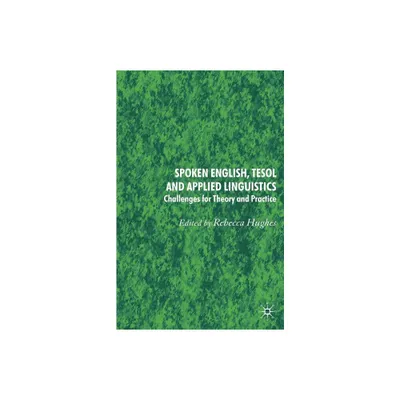Home
A Primer of Spoken English
Loading Inventory...
Barnes and Noble
A Primer of Spoken English
Current price: $6.99


Barnes and Noble
A Primer of Spoken English
Current price: $6.99
Loading Inventory...
Size: OS
*Product Information may vary - to confirm product availability, pricing, and additional information please contact Barnes and Noble
We heartily recommend this scholarly little book to the notice of everyone who takes an intelligent interest in the English language, and who wants a clear and systematic account of our language as it is spoken at the present day. The book before us, small as it is, is well worthy of attention, as it is a first attempt to bring before the intellectual consciousness of Englishmen the phonetic character of the language they are speaking and hearing every day of their lives. In this respect it may be said to be an epoch-making book. There are scores of Spelling Books, Accidences, Grammars, and other Philological Works, treating of the English language as it exists on the written page; but this is the very first book which attempts to give the plain, ordinarily educated Englishman, without unnecessary technical detail, an absolutely faithful picture — a phonetic photograph — of our language as it is now spoken by educated people. In 1886 the Clarendon Press published Mr. Sweet's "Elementarbuch des gesprochenen Englisch," a work intended mainly, as its title implied, for the instruction of the German student. And now at last we may welcome an English Primer on the same subject, so that we may really hope soon to know almost as much about the language we speak as any average German doctor of philosophy. The Elementarbuch has met with well-deserved success in Germany; and we have reason for believing that in that country it is universally held to be an unimpeachable authority on the subject it deals with. We have no doubt that in time the Primer will meet with like success in England. Before long it will be admitted by scholars that we have here a scientifically satisfactory analysis of the sounds of every-day English. Still we must confess that we should not be surprised to find that to many this book will be at first a rock of offence, that to many the facts recorded will come at the first blush as a strange and painful and most unwelcome revelation. Many will fiercely deny that the spoken language of educated men is as slipshod, as far removed from the language of the written page, as it is affirmed to be in this treatise. Some may perhaps go even so far as to accuse our author of a deliberate design to cockneyfy and vulgarize our English tongue, to degrade the standard of correct speech. This is probable, and even so Mr. Sweet will only be incurring the usual fate of prophets, of brave promulgators of new unpalatable truths. He will for a time be misunderstood and misrepresented. Nevertheless our author may await the final verdict of scholars with perfect equanimity. His scientific integrity will come out clear as the noonday; he will be acquitted of the grievous charge of aiming an impious blow at the correctness of his mother-tongue. The fact is, as Mr. Sweet says in his Preface, "the associations of the written language make most people incapable of recognizing a phonetic representation of their own pronunciation." We know an eminent English scholar who even now, in defiance of the vigorous young science of phonetics, persists in stoutly maintaining that he' can detect the sound of l in his own pronunciation of walls, and the sound of r in here, when he says, " Come here, Bob !" This being so, can it be wondered at that he and such as he should be shocked when there is held up to them an exact phonetic mirror of "spoken English"? We cordially recommend this book to the notice of all those who really want to know the truth about this matter.
–The Oxford Magazine, Vol. 9
–The Oxford Magazine, Vol. 9


















